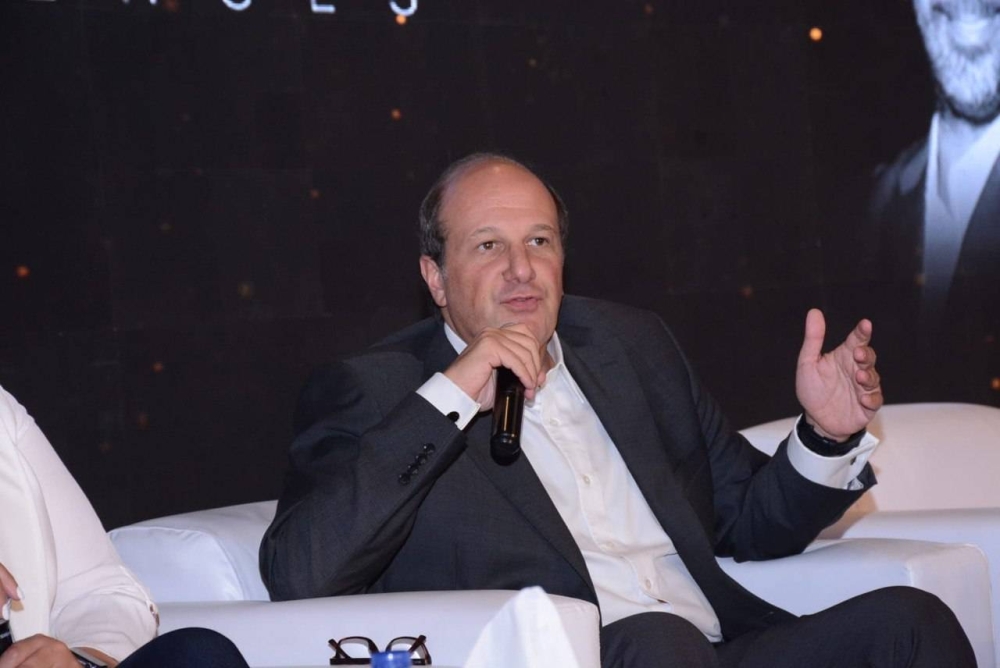
Michel Kilzi is a transformative thought leader and influential authority in data analytics and AI. He consistently champions the view of Data as an Asset in today’s new economy. Michel is credited for his pioneering vision that underscores the power of leveraging our personal digital and data assets. Infusing this with the might of AI and ML, his vision forges the creation of a highly personalized digital counterpart, a clone, with capabilities beyond compare, thereby redefining the horizons of AI. This innovative concept has the potential of creating personalized generative AI that shall revolutionize the way we navigate and maximize our lives, harnessing the full potential of our own data assets and become much more productive in our lives. Imagine a cognitive replica of yourself, designed to streamline your professional and personal responsibilities.
This exceptional virtual companion, fuelled by your personal data, assimilates your unique cognitive framework, preferences, and decision-making patterns. Continuously learning from your interactions and feedback, this AI-Clone adapts effortlessly to changing circumstances, providing unparalleled support and unleashing your potential for a less-stress life.
Cognitive neuroscience and artificial intelligence, intersect in their pursuit to understand and replicate human intelligence. Cognitive neuroscience unravels the neural mechanisms behind human cognition, such as perception, memory, and consciousness, while artificial intelligence aims to mimic these cognitive processes in machines. This convergence has the potential to revolutionize AI, fostering the development of digital-clones that can emulate unique human cognitive patterns.
As Michel says: “We should not fear the disruption caused by AI, instead, we should view AI as a catalyst of data value renovation, social progress, and ultimately well-being”.
Michel believes that each of us can elect to remain a simple user of AI or leverage AI for value creation: you can become a generative powerhouse for your own interests. Learning from your own data is value establishment for you, where your clone is at your sole disposal to be leveraged for your own interests and your own professional and personal objective. By taking control of your data and putting in place as your own life operating system, you would be polarizing somehow the abuse of the big Tech companies, in relation to exploiting your own data footprints to serve their own business objectives.
While it is crucial to acknowledge the potential negative implications and risks associated with AI, it is equally important to recognize the immense opportunities it presents for individuals. Furthermore, even though AI and ML can mimic certain brain functions, they are still tools created and controlled by humans. Their capabilities and actions are determined by their programming and the data they are trained on. AI doesn't have beliefs, desires, fears, or hopes, nor can it feel joy or sadness. It doesn't experience the world or understand it in the way humans do. By taking ownership of our data and leveraging AI, we have the potential to create personalized, AI-driven curated assistants. Large Language Models, is exhibiting exceptional abilities in tasks such as semantic comprehension, query resolution, especially in scenarios where they haven’t been explicitly trained or have limited training.
In this futuristic vision, Michel Kilzi proposes that a user can construct their own personalized, AI-driven Life Operating System (LOS), designed to learn exclusively from the user’s data. This is achieved by creating a personal central data warehouse, which acts as the brain of the LOS, gathering and storing all individual’s personal data. Users can seamlessly, connect his diverse tools and platforms through a simple drag-and-drop interface, allowing the LOS to gather information from diverse sources and learn from the user’s habits, preferences, and behaviors. Assistive tools, such as task automation, health tracking, financial management, and many others can be integrated making the LOS truly comprehensive. Users define their expectations and objectives, dictating what they want their LOS help them achieve. These could range from simple tasks, to more complex goals like tracking health and providing wellness advice.
The user’s LOS becomes a digital clone, adapting and evolving with the user’s changing life circumstances, all under the user’s control and direction, creating an innovative way to manage and optimize your life.
It’s all about how to make our life more productive and more satisfying. Make work more fulfilling and impactful. With advancement of such assistive AI-driven technologies, I foresee: The government becoming the concierge for citizens. Each of us will have his own butler, supported by his own generative AI or Chatgpt equivalent capabilities.
Your AI-clone will be multi-facets, a Personal assistant at work; writing your emails, managing your schedule, producing your reports and many other kind of mechanic tasks. It will be your personal home steward, to manage your health, well-being; but as well it will provide Relationship Management: to ensure the perfect balance between work and family care-taking. The LOS can remember important dates and special events in relation to the family and friends, it can suggest thoughtful actions/gifts or organizing family activities, or manage your leisure, and hobbies. It can provide guidance on child development and parenting based on your child’s age and interests. It can help you improve your communication by suggesting better ways to express your feelings or address conflicts.
Michel concludes: We're on the brink of a new Industrial Revolution ignited by AI! Conceive a bespoke Life Operating System, meticulously crafted to match your life's unique contours. Get a glimpse of this intriguing concept in my latest article published on Forbes about AI-driven Life Operating Systems.
